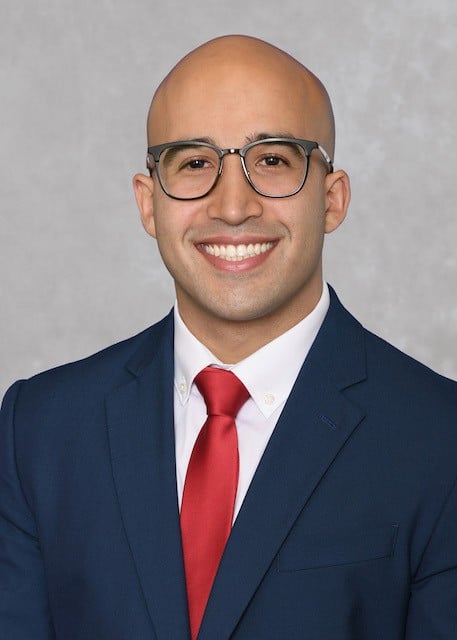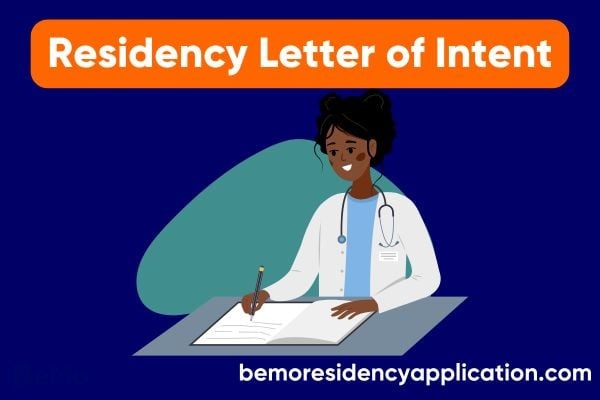Boost your match chances with a compelling residency letter of intent! After completing your residency interviews, it's time to make your mark. This blog covers everything you need to know about crafting the perfect letter of intent—from essential content and formatting tips to common pitfalls. Plus, get access to sample letters for inspiration.
>>Want us to help you get accepted? Schedule a free initial consultation here <<
Listen to the blog!
Residency Letter of Intent Samples
Dear Dr. Eric Johnson, Program Director, X University,
My name is Jonas Jones and it was an honor to share my goals and learn more about X University's Anesthesia Residency Program during my interview with Dr. Adam Cole and Dr. Melanie Smith on January 29, 2019. I am writing you this letter to express my strong interest in Anesthesia and to let you know that I am ranking your program as my number-one choice for residency and, should I be matched with your program, I will accept your offer. In addition, I'd like to provide a brief update to my application materials.
There are many great anesthesia programs, but X University's program remains my top choice for three reasons. First, my professional interests and research skills will be further promoted and supported by this program, as I will have the chance to work on the ongoing studies on sleep medicine at the X Hospital. Second, the program offers a great variety of training that will allow me to rotate through different areas of anesthesiology and related specialties, such as pain medicine, dental anesthesia, and intensive care rotations. Additionally, I will have the opportunity to learn from various preceptors with different expertise. Third, during my elective at X University, I found my colleagues and responsibilities to be educational and enjoyable. My peers and superiors were eager to share their knowledge and help me in any way. I felt a strong sense of community when I attended the Book Club, seminars, and resident meet-ups. Finally, I have a great attachment to the West Coast and would love to remain in X state. After attending undergraduate college outside of [state], I came back to [state] to complete my medical school education and hope to remain here for residency.
During my residency, I look forward to the challenges and professional growth that are inevitable in such an innovative and cutting-edge program. The University of X's commitment to community care, pedagogy, and the principles of our profession leave me certain that I will be the right fit for this program and that I can help your goals and mission. My research experience in sleep medicine can further develop your program’s reputation in this field. I would be honored to become an involved member of your medical community and complete the final stages of my training in your institution. For these reasons, I rank X University’s Anesthesia Residency Program as my first choice.
Lastly, I would like to provide a brief update on my application materials. I was recently invited to present my latest publication and research to an audience of approximately five hundred people at the annual X Conference. Also, my research supervisor has recently promoted me to Research Assistant in his lab, where I am now managing workflow of 5 undergraduate research assistants.
I want to thank you for your consideration. If there is any other information I can provide, please don't hesitate to get in touch.
Sincerely,
Jonas Jones
What is a Residency Letter of Intent and How Does it Help Match?
A residency letter of intent is a short, concise letter that is designed to tell your number-one program choice for residency that they are your top choice, as well as the reasons behind your decision. Think of it as another way to answer the “why should we choose you” residency interview question and affirm your desire to match with a specific program. Our MD admissions expert, Dr. Taneja, MD sums up her first hard experience best:
“A letter of intent is very different and is what you send to a program after you interviewed stating that you intend to rank them #1. I think a letter of intent really only needs to convey one piece of information which is that you are ranking that program #1. Beyond that you can give reasoning why you are ranking it #1, but it's just fluff to the main point.” – Dr. Monica Taneja, Harvard South Shore, Psychiatry
Next, we’ll look at how to format your residency letter of intent, what to include in your letter and what mistakes to avoid.
How to Write a Letter of Intent for Residency
First, keep in mind that your letter of intent is not a recitation of your residency CV.
It’s a short, concise (~300 word) letter that clearly and explicitly states that a residency program is your top choice. Similar to the “what do you hope to gain from our residency program” interview question and “what are you looking for most in a residency program” interview question answers, you’ll outline in your letter why you want to match, what you will contribute to the program and what you will gain in return. You will send a residency letter of intent to only ONE program for this reason. Your goal is to convince a program to choose you as their top choice, too. You may benefit from working with an advisor during this process:
“Dr. Jelena Jelusic was amazing at helping me refine my plan for my Letter of Intent for Pharmacy PGY1 residency program. She helped me fine-tune two types LOIs. I look forward to working with her again. She is very intelligent and great at helping turn jumbled thoughts into eloquent sentences.” – Anonymous,Former BeMo Student
Preparing for residency interviews? Check out some residency interview questions and answers:
What’s Included in a Residency Letter of Intent?
Just like with your residency personal statement, you need to start by brainstorming key points: program alignment with goals, interest in the medical field, and reasons for choosing a specific program. Reflect on interview insights and jot down memorable aspects of each program. Highlight why your first-choice program stands out to you.
You must address your letter to the program director by name – this is imperative! Avoid generic letterheads and salutations at all costs.
In terms of structure, your residency letter of intent should have an opening paragraph, body paragraphs, and a conclusion:
The opening paragraph is where you'll introduce yourself, briefly mention your interview date and then clearly state your intention to rank the program as your number-one choice.
When Should I Send a Residency Letter of Intent?
In terms of timing, the letter should be sent after your interviews, in late January to early February, but well before the final ranking deadline and Match Day. This allows your letter to be genuine because you'll have had a chance to learn more about the program at your interview and will also potentially have had other interviews at other programs.
When Should I NOT Send a Residency Letter of Intent? Do I Need to Send One?
Remember that whichever program you end up matching with, you are contractually and ethically bound to. You won’t be able to change your mind. So don’t send a residency letter of intent unless you are 100% committed to attending that program.
A residency letter of intent is NOT a requirement to get matched, but it can give you an advantage. Be aware, though, that not all programs allow applicants to send a letter of intent. Check the preferences of your residency program before sending a letter of intent!
Mistakes To Avoid in Your Residency Letter of Intent
1. Sending the Letter to the Wrong Recipient
So, you've taken all this time to write a great letter of intent and then you email it to [info@residencyprogram]... This is a big mistake and can result in your letter getting lost in online space; potentially being deleted, not received, and never reaching its intended destination. Always triple check the email address, and ALWAYS address the program director by name – no generic salutations!
2. Listing Unrelated Items
Don't forget, this is a formal letter. Don't use bullet points and don't list your hobbies or random items off your CV. If it doesn't relate to your interests and suitability for the program, don't mention it. If you’re unsure of what to say, consulting an expert is highly advised! For now, though, remember that your residency letter of intent should include a clear expression of your strong interest in the program, specific reasons why you are a good fit, and a brief recap of your relevant experiences and qualifications. Additionally, it serves to reaffirm your commitment to joining the program if offered a position.
3. Beating Around the Bush
In your opening sentence, don't simply state that you like the program and will be ranking it highly. Tell the program director that they are your number 1 choice.
4. Sending Multiple Letters
Sending residency letters of intent to more than one residency program misleading and unethical; it’s meant to be an exclusive commitment to ONE program.
5. Sending a Letter of Intent Inappropriately
Remember, if you send a letter of intent to a program and end up matching, you're ethically bound to that program; don’t send one on a whim or if you feel uncertain.
6. Forgetting to Proofread
Just like residency CV editing, this is a critical last step which demonstrates your professionalism and attention to detail; avoid mistakes by rigorously proofreading.
Need to improve your residency application after going unmatched? Here’s some more ways to boost your chances:
1. What is a residency letter of intent?
A residency letter of intent is a formal letter expressing your commitment to a particular residency program as your top choice.
2. When should I send a residency letter of intent?
Send it after your interviews and before the final ranking deadline, typically between late January and early February.
3. How do I write a residency letter of intent?
Clearly state the program is your top choice, explain why you chose it, what you can contribute, and what you hope to gain, in a formal, concise letter.
4. What is the difference between a letter of intent and letter of interest for residency?
A letter of intent is sent to one top-choice program, while a letter of interest can be sent to multiple programs.
5. What should you avoid in a residency letter of intent?
Avoid informal language, addressing to incorrect recipients, providing vague reasons for interest or lengthy anecdotes. Additionally, avoid sending multiple letters and ensure you proofread.
6. Does a residency letter of intent matter?
Yes, it can give you a competitive edge by showing your strong commitment to your top-choice program.
7. Who do you send a residency letter of intent to?
Send it to the program director or primary interviewer, ensuring it’s addressed correctly.
8. How serious is a letter of intent for residency?
It's a serious commitment indicating you will rank the program as your number one choice and will accept if matched.
To your success,
Your friends at BeMo

